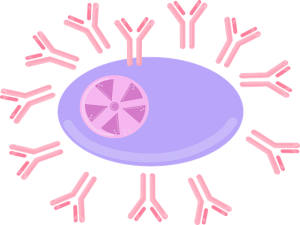Featured Products
- In-Stock Tumor Cell Lines
- Human Orbital Fibroblasts
- Human Microglia
- Human Pulmonary Alveolar Epithelial Cells
- Human Colonic Fibroblasts
- Human Type II Alveolar Epithelial Cells
- Human Valvular Interstitial Cells
- Human Thyroid Epithelial Cells
- C57BL/6 Mouse Dermal Fibroblasts
- Human Alveolar Macrophages
- Human Dermal Fibroblasts, Adult
- Human Lung Fibroblasts, Adult
- Human Retinal Muller Cells
- Human Articular Chondrocytes
- Human Retinal Pigment Epithelial Cells
- Human Pancreatic Islets of Langerhans Cells
- Human Kidney Podocyte Cells
- Human Renal Proximal Tubule Cells
Primary Cells
Explore Products



 The B9 cell line is a mouse B cell hybridoma, derived from the fusion of BALB/c spleen cells with SP2/0-AG14 myeloma cells. The B9 cells are primarily used for studying immune responses, including cytokine activity. Morphologically, B9 cells are small, round, and adhere to the surface in culture. These cells rely on Interleukin 6 (IL-6) for survival and proliferation and exhibit a dose-dependent response to lipopolysaccharide (LPS) stimulation. They also show sensitivity to hybridoma growth factor (HGF) and do not produce immunoglobulins. B9 cells maintain a stable genetic profile without notable mutations, and no high expression of special antigens or genes has been reported. In terms of tumorigenicity, B9 cells do not exhibit tumorigenic or metastatic properties. It is widely used in immunological assays and hybridoma technology for the study of cytokine function.
The B9 cell line is a mouse B cell hybridoma, derived from the fusion of BALB/c spleen cells with SP2/0-AG14 myeloma cells. The B9 cells are primarily used for studying immune responses, including cytokine activity. Morphologically, B9 cells are small, round, and adhere to the surface in culture. These cells rely on Interleukin 6 (IL-6) for survival and proliferation and exhibit a dose-dependent response to lipopolysaccharide (LPS) stimulation. They also show sensitivity to hybridoma growth factor (HGF) and do not produce immunoglobulins. B9 cells maintain a stable genetic profile without notable mutations, and no high expression of special antigens or genes has been reported. In terms of tumorigenicity, B9 cells do not exhibit tumorigenic or metastatic properties. It is widely used in immunological assays and hybridoma technology for the study of cytokine function.